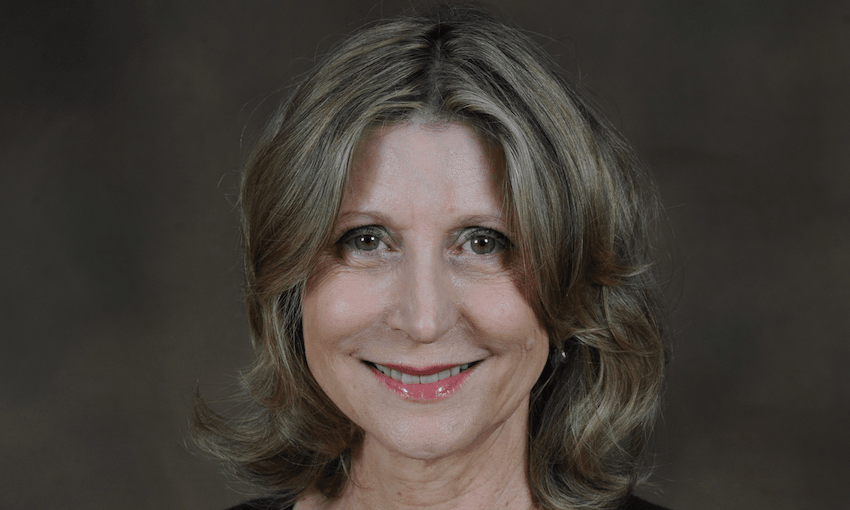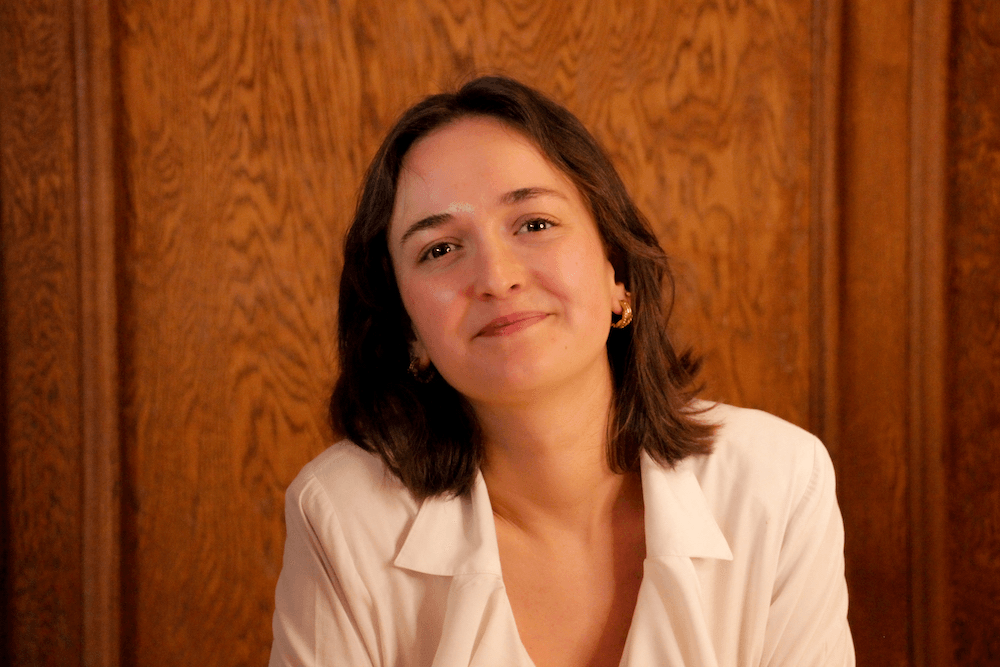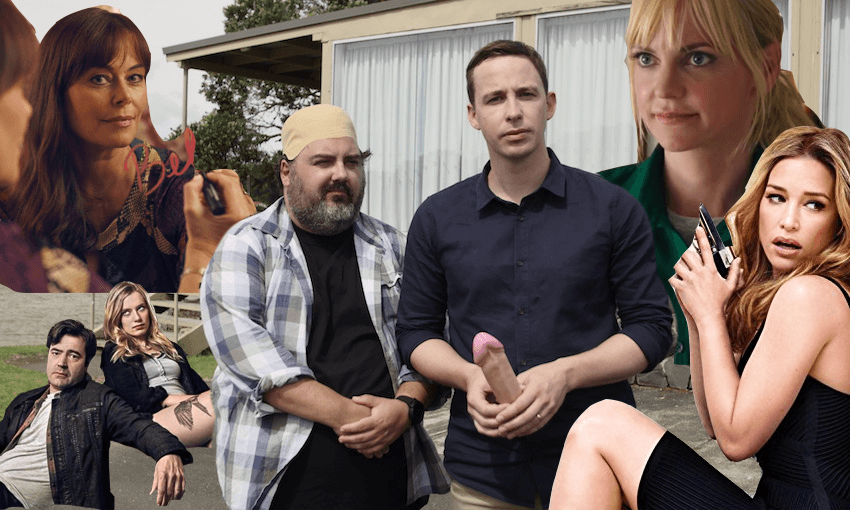Controversial American academic and writer Christina Hoff Sommers is coming to New Zealand in 2019 for #FEMINIST, a talk with Roxane Gay about 21st century feminism. Alice Webb-Liddall spoke to her about what it means to be a self-styled ‘equity feminist’.
With the self designed nickname “factual feminist”, Christina Hoff Sommers has defined her brand by criticising modern feminist ideas, particularly ideas stemming from the academic realm. In her books Who Stole Feminism? and The War Against Boys, and on her YouTube channel, she claims to “debunk” feminist facts and statistics. She has criticised the term “rape culture” and says that men should not be seen as the enemy just because of the actions of a “few outliers”.
She has claimed college campuses, especially those in the US, have become unsafe for young men because of “exaggerated claims of victimization”. And she has argued that modern feminism possesses an “inability to take seriously the possibility that the sexes are equal but different”, an idea that many other feminists reject.
In March 2019 The Spinoff is proud to present #Feminist, featuring Hoff Sommers and writer Roxane Gay. Coming from very different sides of the feminist spectrum, the two will meet live on stage to discuss topics like the gender pay gap, political correctness, and the #MeToo movement.
The Spinoff’s Alice Webb-Liddall asked Sommers about her feminist philosophies, pay equity and the suffragette movement.
The Spinoff: Define your brand of feminism.
Christina Hoff Sommers: I consider myself an equity feminist. An equity feminist wants for women what she wants for everyone – equality, dignity, liberty. It’s a movement that was developed out of the European enlightenment and 19th century humanitarian movements and I think it has one great virtue which is that it works; it has freed women.
What is the difference between that and other brands of feminism that exist at the moment?
I’d divide feminism into two large groups. There’s a group of feminists, largely in the academy, who believe that we are captive to a sex-gender system, and that democratic reform is not enough and they don’t have any particular confidence that democratic freedoms will protect women, and so they’re much more radical. They think that women are a subordinate class.
They subscribe to a sort of conflict period in history of oppressors and the oppressed and I just don’t accept that model. It doesn’t seem, to me, to be a part of reality, not the reality I see – certainly not in the United States, not in Western Europe, Australia, New Zealand. It seems to me that equity feminism is quite effective.
Do you think this modern, what you call ‘radical’ feminism is dangerous in any way?
I don’t think it’s dangerous, It doesn’t appeal to many people though, including women. If you look at polls you will find 25% of Americans will consider themselves feminists; 75% reject the term. Why would that be? I think it’s become associated in people’s minds with this radical view, this idea that we have to ‘bring down the patriarchy.’
What patriarchy? I’m not saying there aren’t areas where women need to and can improve, but if you look at men and women in the United States and probably in New Zealand, it’s a complicated mix of benefits and burdens, and in some ways women are doing better, in some ways men are doing better. You also have to look at different classes and ethnicities and what you end up with is not a simple picture of male equals oppressor, female equals oppressed.
Do you believe the pay gap still exists?
It does, and it needs to be worked on, but I don’t think we’re going to make much progress until we are reasonable in our discussions about the source of the gap. The best studies we’ve got say that it has very little to do with discrimination and employers deliberately paying women over 25% less than they’re paying men. It’s just not an accurate understanding of the problem.
Most of the gap is based on the choices people make. What professions they enter, what they study in school, how many hours a week they work. Many many variables determine pay and when you take account of those variables the wage gap narrows to just a few cents and we don’t even know if those are because of discrimination.
So you’re saying a big part of it is that women choose jobs that are in lower-paying industries?
Yes. Even though we’ve had what 30, 40 years of feminism where women did a lot of effort to interest women in going into electrical engineering rather than psychology and early childhood education, the numbers haven’t changed that much. They changed in some fields, women were locked out of just about everything but are approaching parity with men in fields like medicine. They’ve taken over veterinary medicine in the United States; in social sciences women are flourishing and leaving men behind. But there are certain fields that have to be higher paid – the highest paid major is petroleum engineering and it’s mostly men.
Is that because of discrimination? I’ve made videos and I’ve written that it’s maybe just different preferences and life choices. It may just be that in the pursuit of happiness, men and women don’t take exactly the same paths.
Is this because women may still fear entering a male-dominated sector, for multiple reasons?
It could be, except here’s the problem with that. That was true with law. That was true of medicine, that was true of graduate departments of psychology. It didn’t stop women. They just went in. They barged in and couldn’t be stopped. You then have to think, well why would the lack of female role models or too many men in psychology or medicine, why didn’t that keep women out? So I just don’t think it’s the best explanation.
I think you have to say that there seem to be some fields that, for a complicated set of reasons that we don’t fully understand, that aren’t interesting to women.
So should we still be fighting for more women in jobs they’re not traditionally common in?
I think every parent should try as best they can to interest their child in as many domains as possible, and teachers should do the same but typically, you’re going to find that there’s a limit to how much you can do.
We should try it but not force it. I think what we need to happen is being vigilant about equality of opportunity, but not insist on equality of results because there may be innocent reasons for what happens, having to do with some complicated combination of culture and biology. You’re not gonna ever have a world where the men are all going into the early childhood education and the women are the electrical engineers.
There’s always people who defy stereotypes but there may be some truth to some stereotypes in terms of what men and women find interesting and where their passions are. You’ll find more women committed to work that involves people and involves care and nurture, and we find more men in what might be called the ‘people-free zone’, welders and working in refrigeration or working with things.
We have a lot of vocational evidence. If you ask boys and girls, almost anywhere, would you rather sit around and help people work through problems or would you rather have a little machine and take it apart and put it back together, on average you’ll find more men finding the machine interesting and more women finding they’re working with each other. It’s possible that’s cultural, but we found some evidence, even from studies of primates, that there may be a biological component.
Recently we celebrated 125 years of women’s suffrage in New Zealand. You’ve talked about how you draw feminist inspiration from the suffrage movement. What in particular about it inspires you?
I was a philosophy professor for many years and I taught ethics and I was very sympathetic to utilitarianism, that you wanna have policies and goals that create the greatest good for the greatest number.
I think people more radical than me are not happy with equity feminism, because it doesn’t lead to a world where men and women are interchangeable, you can still have patterns.
I’m not 100% sure that we’re finished – in fact I am sure that we’re not finished with this project. It may turn out that as years go by men and women will become more alike, but I think it’s too soon to say that any difference can only be explained by calling it the results of a patriarchy or a patriarchal oppression or discrimination. It may be just who we are under conditions of freedom.
Do you think people during the first wave of feminism had the same thoughts about the suffragettes, who were known to be very radical?
In those days you were dealing with just horrible barriers. I mean there were just all sorts of institutions where women were not welcome, women could not enter, women were not educated on a par with men, there were very very rigidly enforced gender roles. We don’t have that anymore.
There are parts of the world where there are still rigid patriarchies and rigid gender roles and I think that’s important work for equity feminism. Women around the globe are struggling for their basic rights and opportunities, but I think now, in our part of the world, it’s a new stage.
That’s not to say there isn’t a lot to be discussed and debated. I welcome that and I’m willing to be persuaded but what I choose to do is look at the evidence without ideology and pre-ordained conclusions. Do we need to have a radical movement to revolutionise society? I don’t see evidence for that. I see evidence for the continuation of equity feminism and working with piecemeal social and legal reform.
We constantly hear stories online and on the news about females who have been attacked, raped, murdered, and these stories are always followed up with messages for women about how to better protect ourselves. Do you think this is a fair and appropriate response?
Most boys don’t rape and murder. Most boys are as horrified as we are. It’s horrific. But I hesitate to take a pathological violent criminal and use that person as an exemplar for men, because there are far more instances of goodness and heroism. It’s bigotry.
The way people will see a Muslim who commits a crime and then that criminal becomes the symbol for all Muslims. That’s bigotry. People have done that to women in the past, taken some case and generalised it. We have to stop doing that. That’s why I want a feminism that’s not only evidence based and reality based, but generous and fair to men and not implicating the average male in an atrocity. It’s not fair, it’s not reasonable, and it’s not sound.
To tell women how to protect themselves? I would do everything possible. I would try to have better policing so these criminals can’t do what they do, I would try to teach women and men. Men are more likely to be murdered – at least in the United States, there’s no comparison. So you want to teach your children how to take care of yourselves, that’s just common sense. Ultimately, we’ve got to figure out what we can do about social situations that create criminality, some of it is mental health. I don’t know. It’s an age-old problem. How do you stop a small percentage of people from becoming sociopathic or just criminal? It’s a big question.
So it’s not at all about the way a woman may perhaps be dressed or acting, the amount of alcohol she’s had or any factors of her own doing?
Of course it’s not. Of course. However, there are sociopaths and there are violent predators so I would tell a son or a daughter to be careful at night in certain areas where there’s high crime, or going to certain parts of the world where you might expose yourself to danger. Of course you have to teach your kids to take care of themselves.
Moving forward to the future of feminism, what battles still have to be fought and won?
I don’t think of them as battles. I think of them as problems. We have, in the United States, a feminisation of poverty. A lot of women alone with children – single moms with kids, it’s a disproportionate number. They’re poor and some people are thinking well, we have to find ways to stabilise marriages, we need to keep marriages together, well what if that doesn’t work, what if that’s just not going to happen.
I think that’s a big challenge for conservatives and liberals to work together and address because it makes a huge difference to the wellbeing of society if you have kids that are raised in poverty. Poverty is connected to broken families but if you can’t mend the families, what do you do? That would be high on my list.
A second thing for reform that I think would help a lot of women, mothers, sisters, in general, if we focus more on educating boys. Girls have moved ahead of boys, they’re more likely to go to college, they’re winning the awards, they’re far better readers and writers. We’ve had a lot of very admirable efforts to strengthen girls in maths and science, but we have yet to see efforts to strengthen boys in just about everything else, including school engagement. Boys care a lot less about school than girls do. We’ve done lots of studies about girls and boys in school and I think if you strengthen boys it helps girls. We’re in this together.
Will we live to see the day where we don’t need feminist movements?
I think you’re always gonna want to have someone. I’m an equity feminist, I don’t mind having radical feminists because sometimes they see things you don’t see, you can learn from them.
I think we should do a good job at our schools about teaching that relatively recently women won liberation, and victory is not permanent – we have to keep it alive. And I think the same is true of democracy, to keep democracy alive it needs to live in the heart of men and women and I think the same is true of equality.
What we have now in the United States is a vast bureaucracy of looking out for women and almost nothing for men and boys, and there are huge problems with men’s health, huge problems with boys’ education, male suicide, but there’s not groups focusing on them. So there’s an asymmetry, structurally.
On 27 March 2019 The Spinoff is proud to present #Feminist which brings Christina Hoff Sommers, together with writer Roxane Gay. Coming from very different sides of the feminist spectrum, the two will meet live on stage to discuss topics like the gender pay gap, political correctness, and the #MeToo movement. Get your tickets here.






